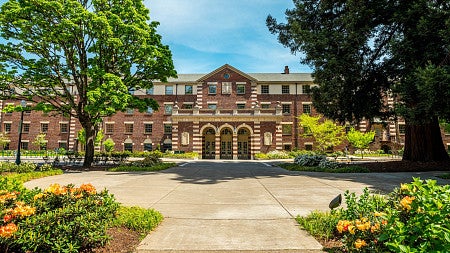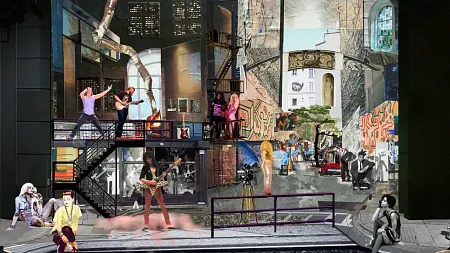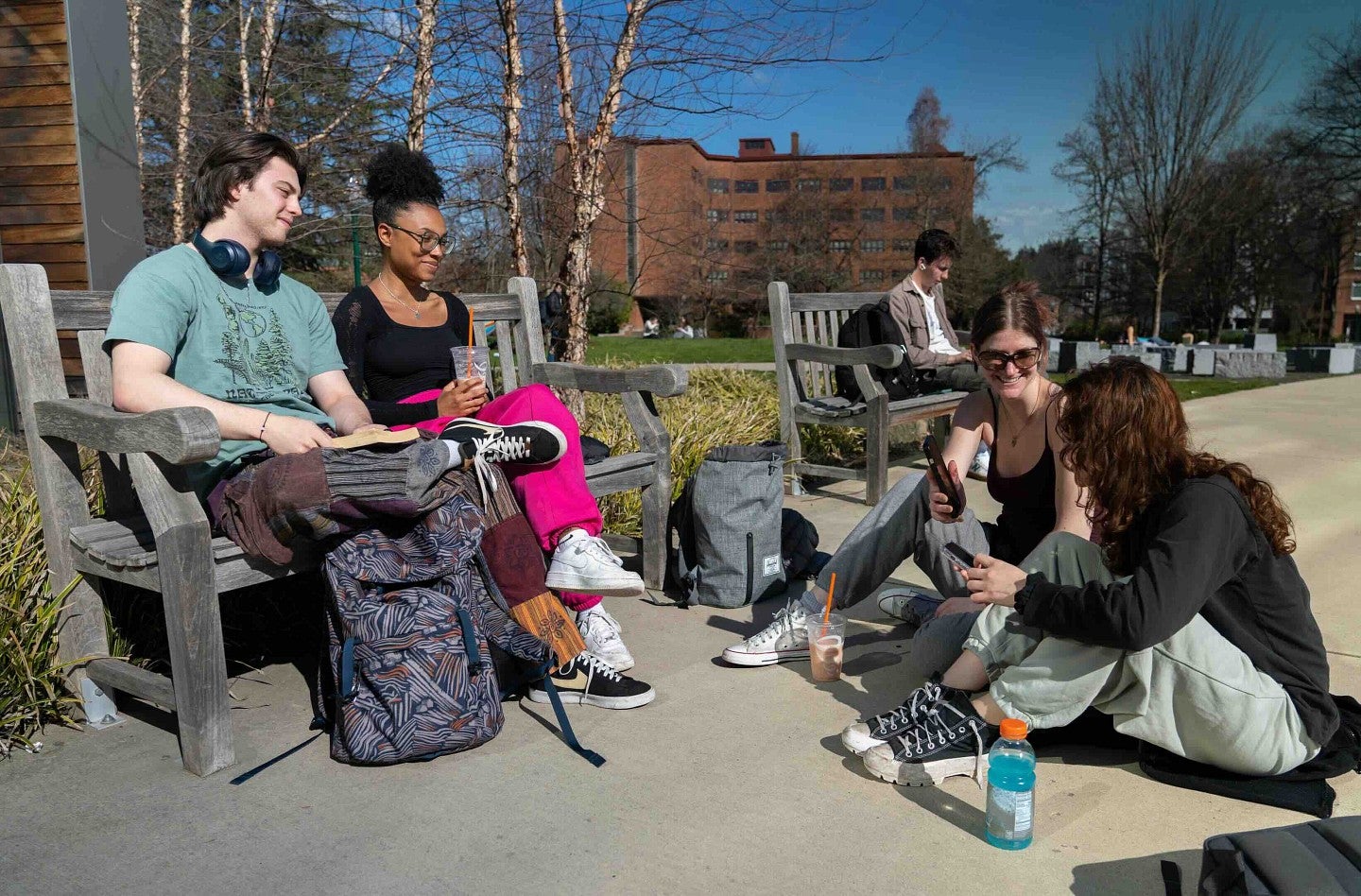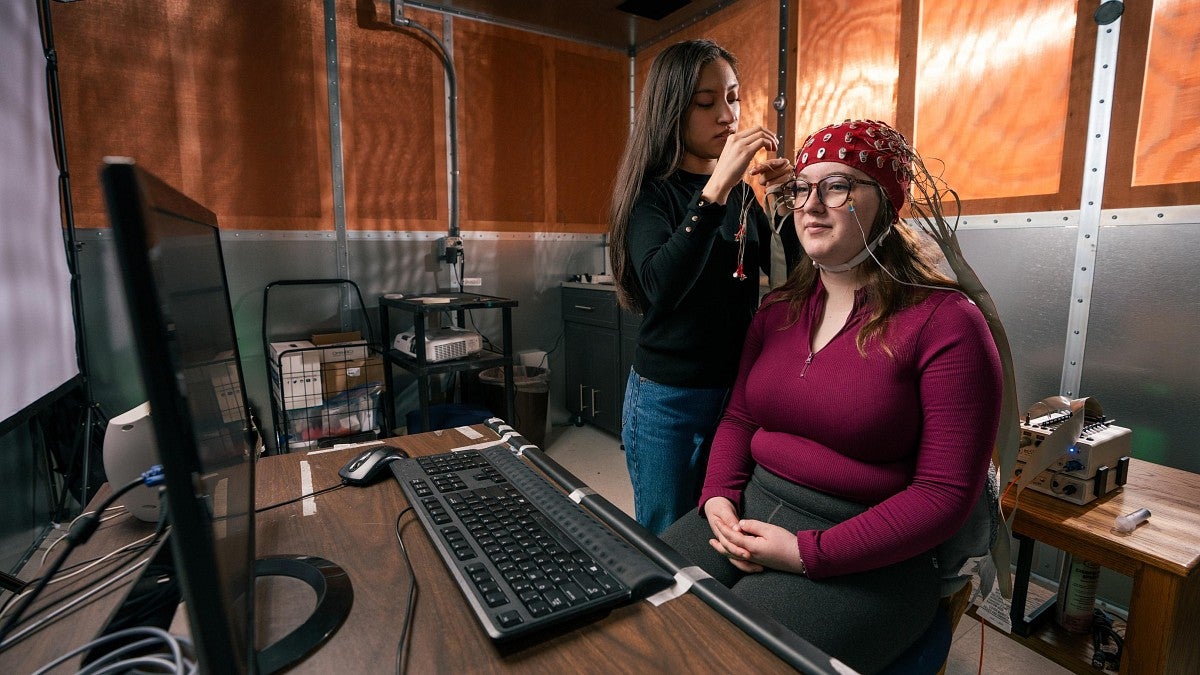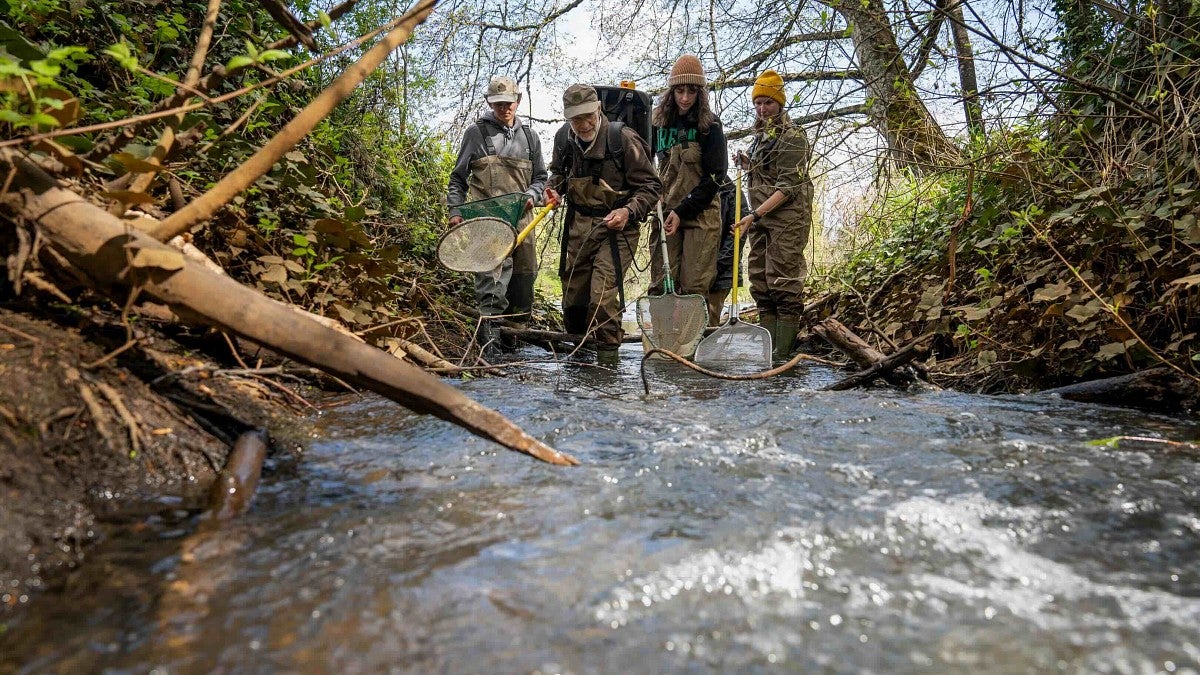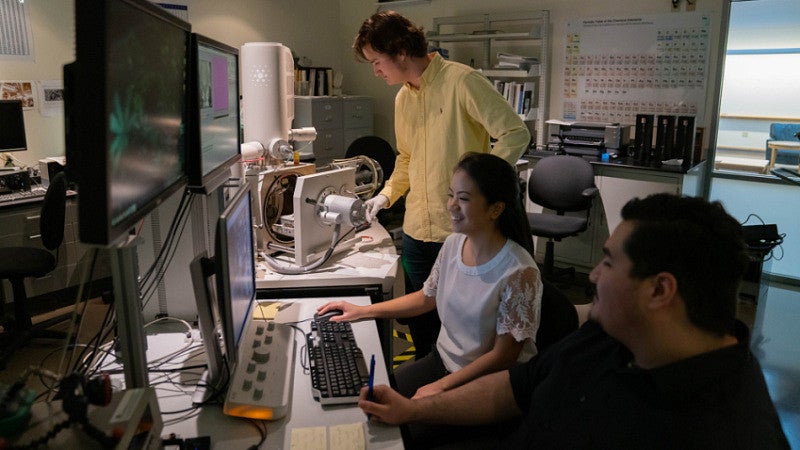
The departments and programs of the Humanities Division are committed to the study of human meaning as it is expressed in diverse languages, explained in diverse literatures, and reflected upon from diverse philosophical and religious perspectives. Students seek to understand the values and purposes that make practices and systems worthwhile. In an increasingly interconnected world, the ability to critically consider how individuals and communities make sense of their world is an essential skill. Explore majors, minors, concentrations, and academic programs in the humanities.
American English Institute
Arabic Studies
Chinese
Cinema Studies
Classical Civilization
Classics
Comparative Literature
Creative Writing
Comics and Cartoon Studies
Digital Humanities
Disability Studies
English
Environmental Humanities
News from Humanities
All news »
We Love Our Supporters
Gifts to the College of Arts and Sciences can help our students make the most of their college careers. To do this, CAS needs your support. Your contributions help us ensure that teaching, research, advising, mentoring, and support services are fully available to every student. Thank you!
World-Class Faculty in the Humanities
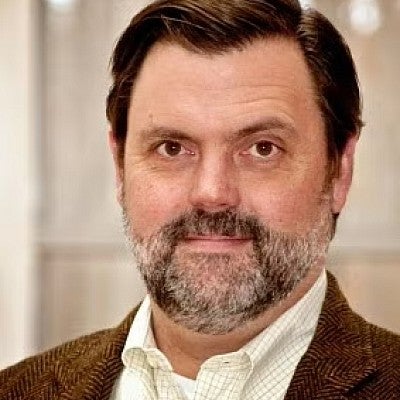
Stephen Shoemaker
Professor of Religious Studies
Stephen Shoemaker teaches courses about Christian traditions and is a prolific contributor to research related to ancient and early medieval Christian traditions in early Byzantine and Near Eastern Christianity.
Shoemaker has received research fellowships over the years and received two in 2024 to complete the translation of the earliest surviving Christian hymnal from sixth-century Jerusalem, which is in Old Georgian. The fellowships include one from the National Endowment for the Humanities for 2024–2025 and a Senior Fellowship funded by the Deutsche Forschungsgemeinschaft (German Research Foundation).
He recently published The Quest of the Historical Muhammad and Other Studies on Formative Islam (2024) and is the co-author of The Capture of Jerusalem by the Persians in 614 CE (2024).
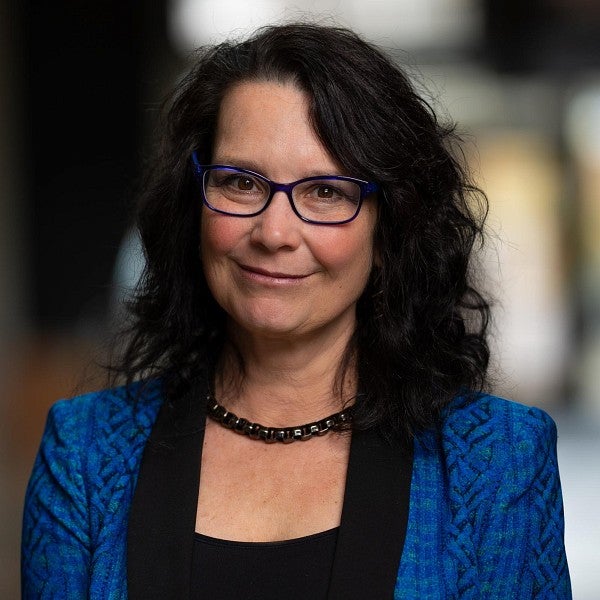
Stacey Alaimo
Professor of English
Stacey Alaimo’s research explores the intersections between literary, artistic, political, and philosophical approaches to environmentalism. She has published three books and more than 60 scholarly articles, on such topics as toxins, gender and climate change, environmental justice, queer animals, Anthropocene feminisms, marine science studies, the blue humanities, and new materialist theory.
Her concept of trans-corporeality has been widely taken up in the arts, humanities and sciences. She has been interviewed many times in print and podcasts. Her work has been translated into at least 12 languages and has inspired several art exhibitions.
Her fourth book, The Abyss Stares Back: Encounters with Deep Sea Life (2025), explores the science and aesthetics of deep-sea creatures since the 1930s. Alaimo currently serves as the English department’s director of graduate studies and is a core faculty member in the Environmental Studies Program.
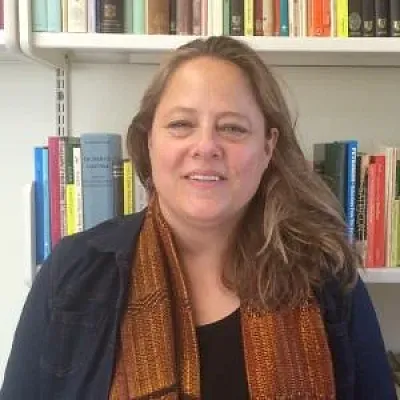
Lowell Bowditch
Professor of Classics
Lowell Bowditch is the head of the Department of Classics. Her research explores the interface between the literature and socio-political relations of Augustan Rome.
Her newest project addresses issues of free speech and censorship in the early imperial age. She explores this through the work of Ovid in the context of the growing authoritarianism of the Augustan regime, with the planned book to draw comparisons with the contemporary political landscape.
Her previous work focused on love elegy and Roman imperialism from postcolonial perspectives. Along with multiple articles and research papers, she is the author of two books and a commentary, including the most recent, Roman Love Elegy and the Eros of Empire (London and New York 2023).
Bowditch came to the UO in 1993 and particularly enjoys mentoring classics undergraduates and master’s students.

Schnitzer School of Global Studies and Languages
At the Schnitzer School of Global Studies and Languages (SGSL), UO students engage with diverse cultures, languages, histories, and lifeways across the world. Students of the humanities, from Cinema Studies to Religious Studies, will broaden and deepen their education in their field by viewing it—and experiencing it—through a global lens. GSL prepares our graduates for life after college with an interdisciplinary curriculum, innovative language teaching, abundant learning opportunities outside the classroom, and paths of study that lead to many options for real-world careers.
Research in the Humanities
Inquiry in humanities fields centers around our collective human experience. Our stories are told in many forms, be it a script, a screenplay, a religious text, in literature or in folktales. Researchers in the humanities employ tools of analysis to explore the long history and rapidly changing landscape of ideas, values and beliefs that coalesce in a different sort of knowledge about reality and human life.
2024-2025 Sponsored Research in Humanities
Between July 2024 and June 2025, researchers in CAS received $83 million to fund 199 research projects, including $1.5 million for Humanities. The research projects, which span divisions and fields of study, represent CAS's commitment to curiosity, discovery, and innovation.
Explore Other Majors and Minors in the College of Arts and Sciences
Meet our Dean
Welcome to the humanities!
With the human condition as our starting point, and an orientation spanning the past, present, and far into the future, the humanities at the University of Oregon address society’s core human questions of meaning, making, communication, and understanding.
In the College of Arts and Sciences, humanities span disciplinary fields, such as literature and languages, folklore, theatre and cinema, philosophy, classics, and religious studies. Our faculty teach students key humanistic skills such as writing, critical analysis, logical reasoning, translation, and expression. Our programs emphasize the liberal arts through engaged student learning, and our students are trained by the UO’s world-class research faculty to be resilient thinkers, capable of bringing their humanistic insights to bear on a transforming world.
Like any other time of rapid change, whether the Industrial Revolution or the technological revolution, thinkers of the human condition reflect and analyze human experiences and make it possible to share them. Through its many disciplines, the humanities inspire communication, uniting diverse communities in a common path, helping us address some of our most pressing human concerns.
We hope you will explore the humanities at the UO.
Erica Bornstein
Divisional Associate Dean, Humanities
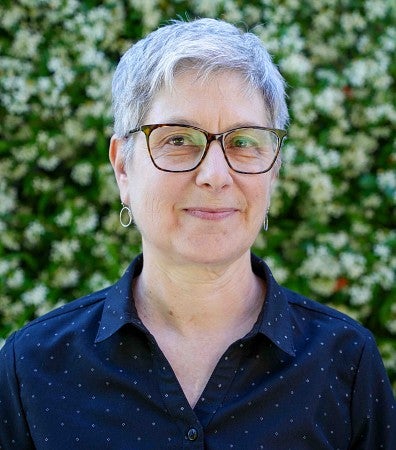
Happening at CAS
10:00–11:00 a.m.
Please join us Tuesday mornings for a free cup of coffee, pastries, and conversation with your history department community! We’re excited to continue this tradition for our history undergraduate and graduate students, faculty, and staff. We hope to see you there!
2:00–4:00 p.m.
From Jan. 21 and continuing until March 18, the Northwest Native American Language Resource Center (NW-NALRC) will be holding weekly consultation and assistance times.
From 2-3pm PST we will be providing consultation and assistance with Community Projects and Planning.
From 3-4pm PST we will be providing consultation and assistance for Supporting Language Teaching and Learning.
To join, please fill out this short form https://forms.office.com/r/D2pg3wErfj.
If you are in need of assistance, or if you have any questions, please contact nalrc@uoregon.edu.
4:00–5:00 p.m.
Learn how Job Shadow Day can help you build your network, explore careers, and boost your professional profile. This info session will cover the application process, timeline, and tips for making the most of this opportunity to spend a day with a local employer.
4:00–5:00 p.m.
Learn how Job Shadow Day can help you build your network, explore careers, and boost your professional profile.
Join us to learn about UO's Job Shadow Day, happening Friday, May 15. It’s a unique opportunity to spend a day alongside local professionals and explore potential career paths and job roles in areas like education, health, sustainability, arts, business, government, and more.
At this info session where you’ll learn:
- What Job Shadow Day is and how it works
- How to apply and get matched
- What to expect during your shadow experience
- Tips for making the most of your day
Job Shadow Day is a low-pressure, high-reward opportunity to:
- Experience a unique, behind-the-scenes look at industries and roles of interest
- Explore career paths you may not have considered
- Build professional connections
- Envision how your skills and passions can play out in the world of work & community
- Learn more about Eugene/Springfield and ways to engage!
✨ Job Shadow Day spots are limited; come find out how to apply and get matched!
contact careerlab@uoregon.edu with questions.

